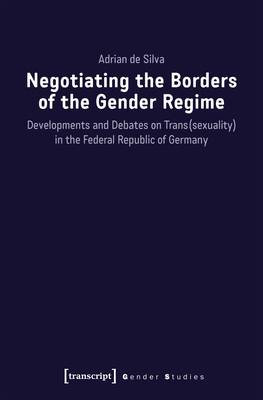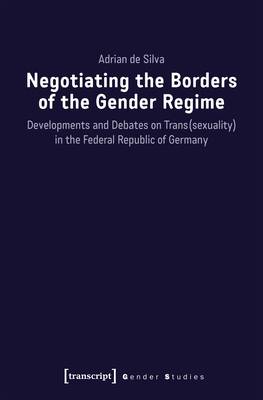
- Afhalen na 1 uur in een winkel met voorraad
- Gratis thuislevering in België vanaf € 30
- Ruim aanbod met 7 miljoen producten
- Afhalen na 1 uur in een winkel met voorraad
- Gratis thuislevering in België vanaf € 30
- Ruim aanbod met 7 miljoen producten
de Silva, Negotiating the Borders of the Gender Regime
Developments and Debates on Trans(sexuality) in the Federal Republic of Germany
Adrian de Silva
€ 82,45
+ 164 punten
Omschrijving
While social change regarding trans(sexuality) has evolved within an expanding nexus of concepts, practices, regulations, and institutions, this process has barely been analyzed systematically. Against the background of legislative processes on gender recognition in a society shaped by heteronormative hegemony, Adrian de Silva traces how sexology, the law, federal politics, and the trans movement interacted to generate or challenge concepts of trans(sexuality) from the mid-1960s to 2014 in the Federal Republic of Germany. The interdisciplinary study draws upon and contributes to debates in (trans)gender and queer studies, political science, sociology of law, sexology, and social movements.
Specificaties
Betrokkenen
- Auteur(s):
- Uitgeverij:
Inhoud
- Aantal bladzijden:
- 436
- Taal:
- Engels
- Reeks:
Eigenschappen
- Productcode (EAN):
- 9783837644418
- Verschijningsdatum:
- 27/07/2018
- Uitvoering:
- Paperback
- Formaat:
- Trade paperback (VS)
- Afmetingen:
- 147 mm x 224 mm
- Gewicht:
- 680 g

Alleen bij Standaard Boekhandel
+ 164 punten op je klantenkaart van Standaard Boekhandel
Beoordelingen
We publiceren alleen reviews die voldoen aan de voorwaarden voor reviews. Bekijk onze voorwaarden voor reviews.










